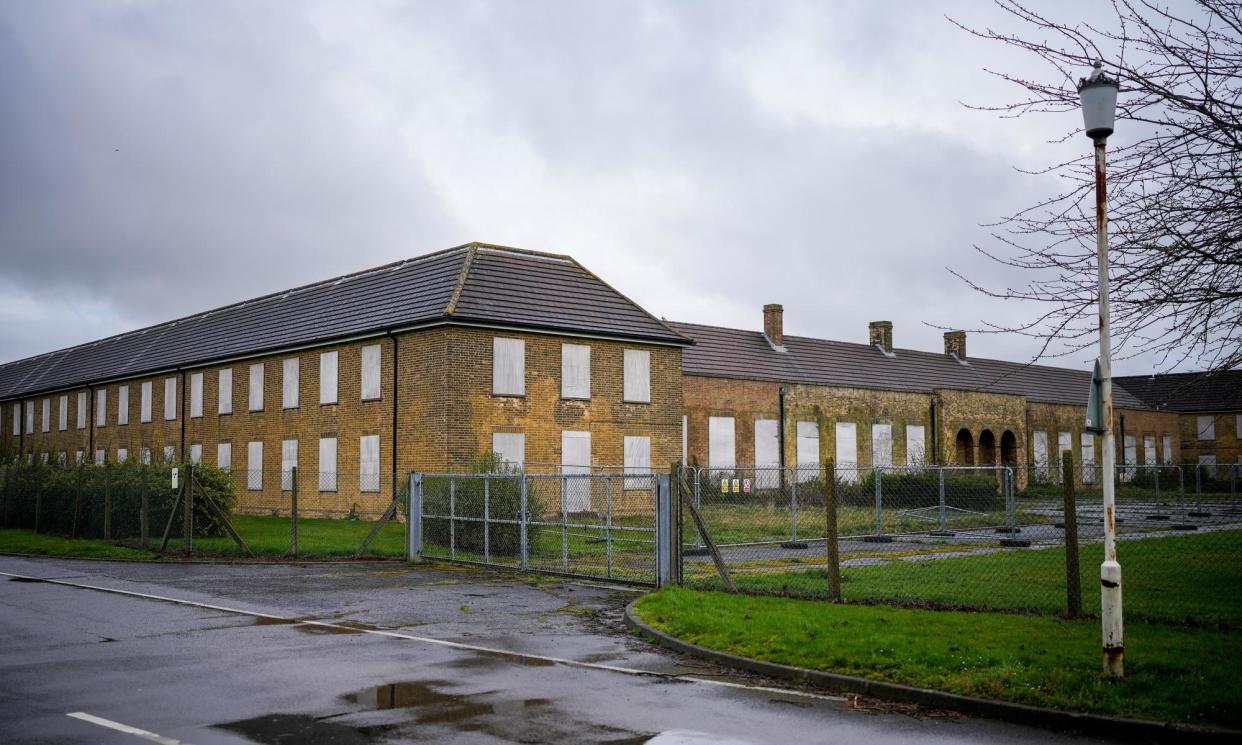Asylum seekers can be housed at former RAF bases, high court rules

Council bosses are planning to appeal against a high court ruling that gives the government the green light to use two military sites to accommodate thousands of asylum seekers.
Lawyers representing West Lindsey district council in Lincolnshire argued that plans to use the disused RAF Scampton, where the “dambusters” were based during the second world war, were unlawful. Lawyers for Braintree district council where Wethersfield airfield is based, made similar arguments. A local Braintree resident, Gabriel Clarke-Holland, was also involved in the legal challenge.
The judge, Mrs Justice Thornton, dismissed the claims on Wednesday, ruling in favour of the home secretary and secretary of state for levelling up. In her judgment, she said there was an emergency in the UK faced by asylum seekers who are at threat of homelessness which allowed the government to use these sites for mass asylum accommodation.
Related: Thanks to James Cleverly, I may never live in the same country as my kids again | Claire Armitstead
The Home Office hopes to ultimately move up to 1,700 asylum seekers to Wethersfield and about 2,000 to RAF Scampton. There are reports that the Home Office plans to accommodate 1,000 asylum seekers at Wethersfield by Christmas. There are now about 600 housed there. Scampton is not yet accommodating asylum seekers.
The home secretary, James Cleverly, who is also the local constituency MP for Braintree, recently said he hoped it would be possible to close Wethersfield as soon as possible.
Originally, the Home Office said it planned to use the two sites for only 12 months, and so could rely on a planning clause known as Class Q, which does not require officials to seek planning permission. But just before the hearing started, government officials said they actually planned to use the sites for several years.
Lawyers representing both councils have made complaints about ministers’ use of planning rules. They have also raised concerns about migrants being housed for longer than the initially envisaged 12 months.
The claimants argued that the former home secretary Suella Braverman acted unlawfully by relying on emergency powers under Class Q of the Town and Country Planning Act, to set up asylum accommodation in military bases by circumventing the ordinary planning consultations.
After the judgment all three claimants have applied for permission to take the case to the court of appeal.
Sue Willman of Deighton Pierce Glynn, representing Clarke-Holland, said: “What stands out from this judgment is that the home secretary always planned to use the accommodation centre for at least two to three years whilst using her emergency powers claiming it was a 12-month development. The lack of a full planning process, upheld in this case, has led to local residents feeling their views and knowledge are ignored. That is unhelpful for rule of law and democracy.”
Cllr Graham Butland, leader of Braintree district council, said: “We are of course disappointed with this outcome after months of work to present our case and evidence as we still believe it isn’t an appropriate site for a development of this scale given its remote location and the lack of capacity in local services.”
A Home Office spokesperson said: “We welcome the judgment which was in the Home Office’s favour.
“Using surplus military sites provides more orderly accommodation for those arriving in small boats while reducing the use of hotels, as we continue to deliver our plan to stop the boats.
“We are working with councils and key partners to manage the impact of using these sites, including liaising with local police to make sure appropriate arrangements are in place.”


